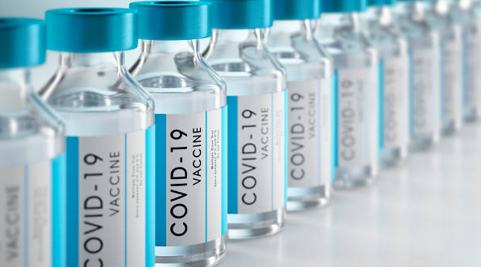Research has shown no serious reactions in children aged 5-11 who received the COVID vaccine, and the most common side effect is a bit of a sore arm.
Launching delivery by community pharmacists of childhood immunisation doses, Pharmacy Guild National President Professor Trent Twomey urged parents and carers with children in this age group to have their children vaccinated for their protection - and also for those around them.
Trent and Georgina Twomey’s children Scarlett and Archer were among the first young Australians to receive the protection against the ravages of COVID.
The Guild’s President said Pfizer vaccine has been approved for children 5-11 and is recommended by ATAGI, the Australian Technical Advisory Group on Immunisation.
ATAGI recommends children aged 5-11 receive two 10 microgram doses (which is one-third of the over-12s dose), eight weeks apart.
Children aged 5-11 years with medical risk factors for severe illness, Aboriginal and Torres Strait Islander children, and children living in crowded conditions or outbreak areas are most likely to benefit from COVID-19 vaccination given their increased risk of severe outcomes and/or exposure.
Children aged 5-11 years who have previously had SARS-CoV-2 infection can receive the paediatric Pfizer COVID-19 vaccine.
American experience is a useful guide. More than five million US children aged 5-11 have had one dose and more than two million have had a second dose.
One potential concern US authorities are watching for is the risk of heart inflammation, called myocarditis. This is a rare side effect after the second dose in young males aged 12-17, with an estimated risk of around ten cases per 100,000. The results are encouraging: No cases of myocarditis, or the related condition pericarditis, were reported in the clinical trial of 5-11 year olds.
There are two reasons for an eight week interval between doses for 5-11 year-olds in Australia.
The first is a potentially better immune response. Studies in adults have shown a larger gap between doses has resulted in a higher antibody immune response and better vaccine effectiveness, although this has not been shown yet for children under 12.
The second is a lower risk of developing myocarditis. In a Canadian study, young adults aged 18-24 had lower rates of myocarditis when the interval between dose one and two was greater than eight weeks compared to those with an interval of less than 30 days between doses.
Children who are allergic to foods such as nuts, milk or eggs, or those who have asthma or hay fever, can safely receive the Pfizer vaccine.


